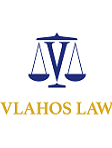
Darlene Vlahos
3305 Pittsburgh Ave, Erie, PA
Practices
License
License ID number: -
Licensed in: -
Year admitted: -
Last reviews
See All ReviewsConnor grabinski
Marilyn baran
Heidi hess
Best lawyers in Erie, PA
What Questions Should I Ask Before Hiring a Lawyer?
Hiring the right lawyer is crucial for the success of your case. Here are some important questions to ask during your initial consultation:
-
What experience do you have with cases similar to mine?
Ensure the lawyer has relevant experience in the specific area of law pertaining to your case. -
How do you charge for your services, and what are the estimated costs?
Understand the fee structure, including hourly rates, flat fees, retainer fees, and any additional expenses. -
Who will be handling my case?
Find out if the lawyer will handle your case personally or delegate tasks to other attorneys or paralegals. -
What is your approach to resolving cases like mine?
Learn about their strategy, whether they prefer negotiation, mediation, or litigation. -
What potential outcomes can I expect?
While no lawyer can guarantee results, they can provide an assessment of possible scenarios based on their experience. -
How will you communicate with me throughout the process?
Establish expectations for updates, preferred communication methods, and response times. -
What is the expected timeline for my case?
Get an estimate of how long the process may take from start to finish. -
Do you have references from past clients?
Testimonials or references can provide insight into the lawyer's professionalism and effectiveness. -
What challenges do you foresee in my case?
Understanding potential obstacles helps you prepare and sets realistic expectations. -
Are there alternative ways to resolve my legal issue?
Discuss options like mediation, arbitration, or settlement to resolve the issue efficiently.
Can a Lawyer Represent Me in Courts Outside of Erie, Pennsylvania?
Whether a lawyer can represent you in courts outside of your city or state depends on their licensure and the jurisdiction of the court:
-
Within the Same State:
Lawyers licensed in a particular state can typically practice anywhere within that state, including all cities and counties. They can represent you in both state and federal courts located in that state. -
Outside of Their Licensed State:
If your case is in a different state, the lawyer must be licensed in that state to represent you. However, there are exceptions:- Pro Hac Vice Admission: An out-of-state lawyer can request special permission to represent a client in a specific case in another state. This requires filing a motion with the court and often working in conjunction with a local attorney.
- Federal Courts: If your case is in federal court, a lawyer licensed in any state may be able to represent you, provided they are admitted to practice in that particular federal court.
-
International Representation:
For cases outside the United States, different rules apply, and the lawyer may need to comply with the foreign country's legal requirements or collaborate with local counsel.
It's important to discuss your specific situation with the lawyer to determine if they can represent you in the desired jurisdiction and what steps may be necessary to do so.
How to Check the Credibility of a Lawyer
Before hiring a lawyer, it's crucial to verify their credibility and ensure they're qualified to handle your case:
-
Verify Their License:
Check with your state's bar association to confirm the lawyer is licensed and in good standing. Most state bar websites have an online directory for this purpose. -
Experience and Specialization:
Ensure the lawyer specializes in the area of law relevant to your case. Review their website, professional profiles, and case history. -
Disciplinary Record:
Look up any history of disciplinary actions or complaints through the state bar association's records. -
Client Reviews and Testimonials:
Read reviews on legal directories like Avvo, Martindale-Hubbell, Google, or Yelp to gauge client satisfaction and experiences. -
Professional Memberships:
Membership in professional organizations or specialty bar associations can indicate a commitment to their field and adherence to high ethical standards. -
Awards and Recognitions:
Honors from reputable organizations reflect expertise and a positive reputation in the legal community. -
Consultation Assessment:
Use the initial consultation to evaluate their communication skills, responsiveness, and willingness to address your concerns. -
Ask for References:
A credible lawyer should be willing to provide references from past clients who can speak to their abilities and professionalism.
What Should I Prepare for My First Consultation?
To make the most of your initial meeting with a lawyer, come prepared with:
-
Relevant Documents:
Bring all documents related to your case, such as:- Contracts or agreements
- Correspondence (emails, letters, texts)
- Legal notices or court papers
- Financial records (if applicable)
- Evidence (photos, videos, receipts)
-
Written Summary:
Prepare a concise written summary of your situation, including key dates, events, and parties involved. This helps the lawyer quickly understand the context. -
List of Questions:
Write down any questions you have about your case, the legal process, fees, or the lawyer's experience. -
Financial Information:
If your case involves financial matters, bring relevant documents like pay stubs, tax returns, bank statements, or invoices. -
Contact Information:
Provide details of any witnesses or other parties relevant to your case, including their names and contact information. -
Personal Identification:
Bring a valid photo ID for verification purposes. -
Pen and Notebook:
Take notes during the consultation to remember important points discussed. -
Budget Constraints:
Be ready to discuss your budget and any financial limitations so the lawyer can provide appropriate guidance on fees and payment options. -
Openness and Honesty:
Be prepared to discuss your case candidly. Full disclosure allows the lawyer to give accurate advice and anticipate potential challenges.




